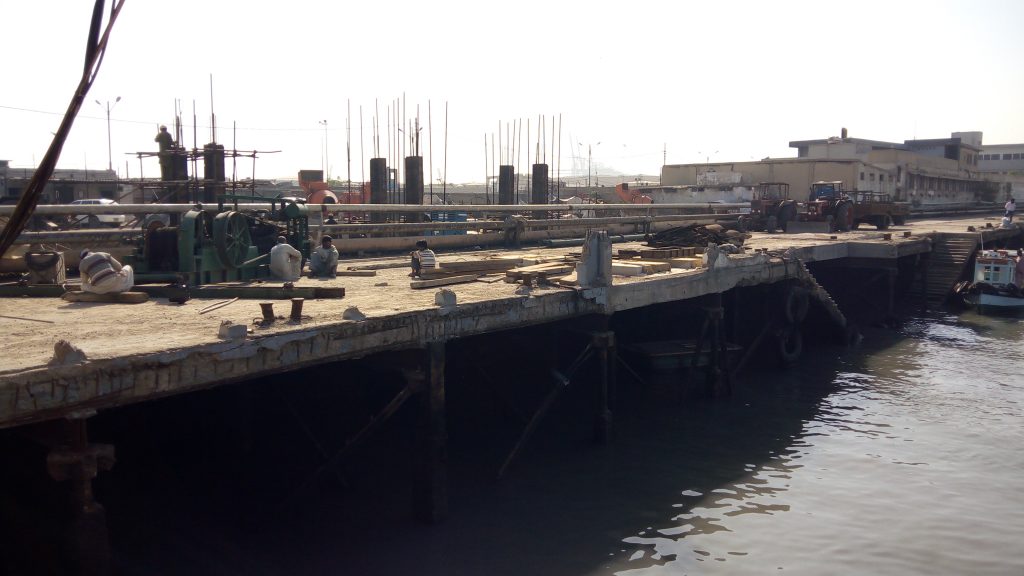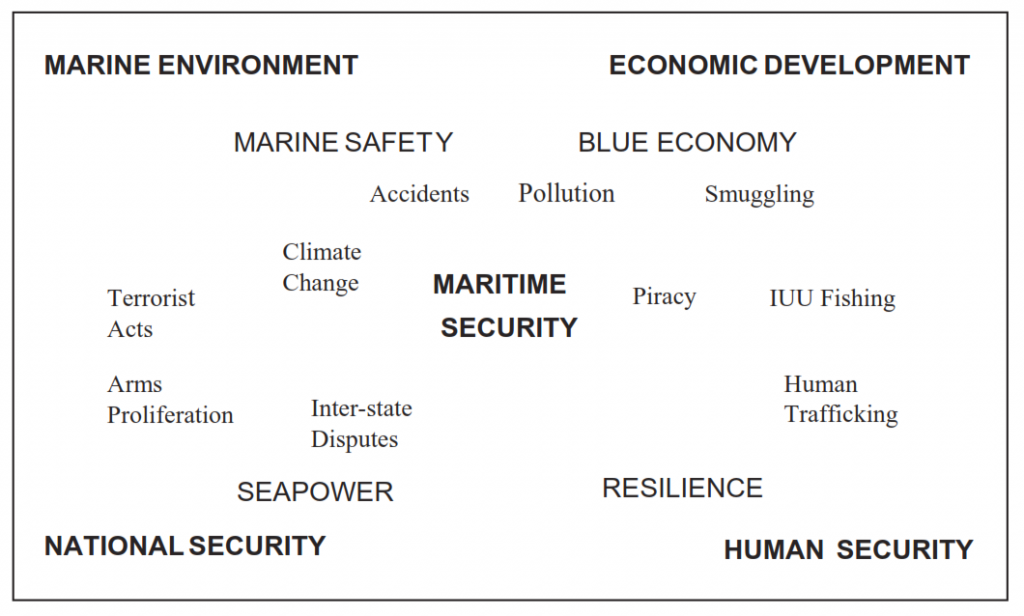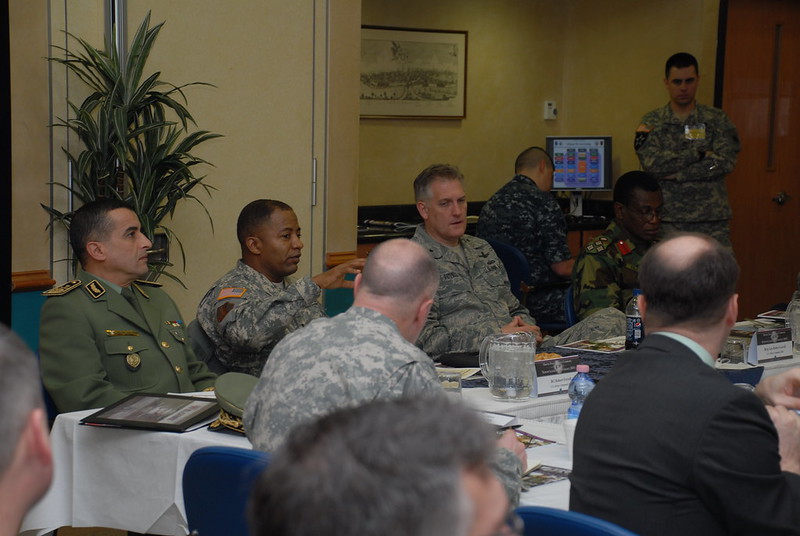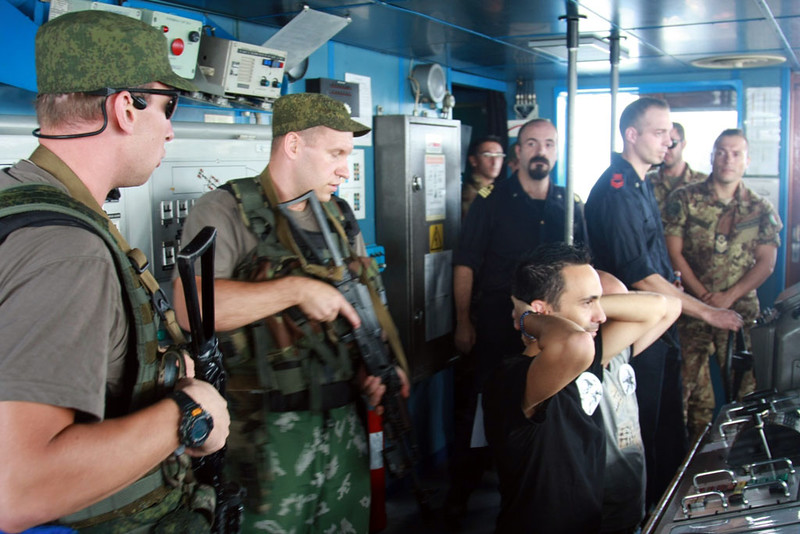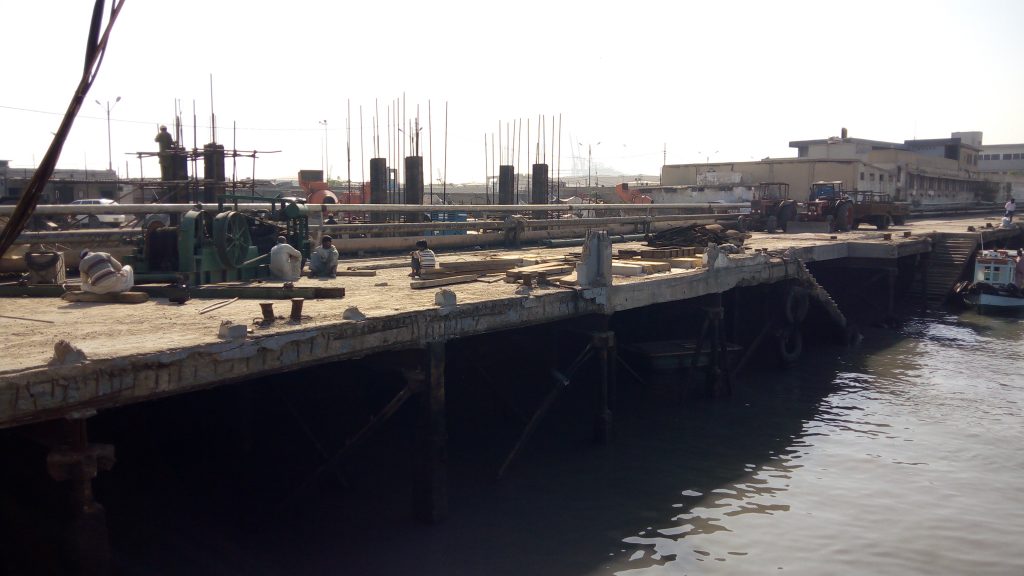 Concepts are not only descriptive of our activities, they are also prescriptive. They direct actions and provide a certain understanding of how things should be done. They stand for distinct (political) projects. The projects analyzed in SAFE SEAS aim at building capacity for maritime security. While the concept of maritime security has been discussed in a previous post, what does capacity building entail?
Concepts are not only descriptive of our activities, they are also prescriptive. They direct actions and provide a certain understanding of how things should be done. They stand for distinct (political) projects. The projects analyzed in SAFE SEAS aim at building capacity for maritime security. While the concept of maritime security has been discussed in a previous post, what does capacity building entail?
SAFE SEAS in Pakistan
SAFE SEAS Principal Investigator Dr. Bueger attended the 7th International Maritime Conference organized by Pakistan’s National Centre for Maritime Policy Research (NCMPR) in Karachi. He gave a presentation on the strategic options for Pakistan to take a leadership role in the Western Indian Ocean region, highlighting the importance of capacity building initiative. During the stay … Read more
SAFE SEAS recruits staff
SAFE SEAS is currently recruiting a Research Associate at post-doctoral level. The successful candidate will support the principal investigators in running the project and will be in particular responsible for data collection, stakeholder contacts and drafting project publications. The application process closes on February 27th. We will also be recruiting local research assistants based in Djibouti, Kenya, Seychelles and Somalia soon.
Defining Maritime Security
Maritime Security is a buzzword and no consensual definition has emerged on the concept. The absence of a universal definition is not necessarily a problem given the political character of the term, and the need for having country and region specific understandings of what challenges maritime security poses. In outlining situation specific working definitions it is important to avoid two approaches: Firstly, the laundry list approach, in which the concept is defined as the prevention of a list of threats, which is not further prioritized. Secondly, the normative approach, which equates maritime security with an idealized understanding of “good order at sea” without specifying what this order is supposed to be or whose order it will be.
First Concept Note Published: Introducing the SPIP methodology
SAFE SEAS Concept Notes outline initial project results. These are work in progress documents that have the primary purpose of serving as consultation and discussion drafts. We have published the first Concept Note titled Maritime Security Capacity Building: Spotting the Gaps. The note discusses which methodologies are available for assessing maritime security sectors. It introduces the … Read more
Maritime Security Capacity Building: Spotting the Gaps.
This working paper, part of the Capacity Building project, discusses which methodologies are available for assessing maritime security sectors. On this basis it proposes a new methodology the Spaces, Problems, Institutions, Projects framework. Read the paper here.
What’s wrong with the US Maritime Security Sector Reform Guide?
Recognizing that capacity building in the maritime security sector lacks guidance and is too often conducted in an ad-hoc manner, in 2010 several U.S. government agencies, including USAID, published the Maritime Security Sector Reform (MSSR) Guide.
A focus on functions
The goal of the guide is to assist countries in assessing their maritime security sector and reforming it. According to Tom Kelley (2014), former assistant secretary of the US Department of State, the MSSR guide intends to illuminate “the interdependency of the Maritime, Criminal Justice, Civil Justice and Commercial sectors and identifies the functions that any government must perform in order to deliver what its citizens might recognize as maritime security.” The guide specifies so-called “functions”, that is groups of related activities. Six main functions are outlined (Governance, Civil and Criminal Authority, Defense, Safety, Response and Recovery and Economy). These are then further divided in “sub-functions”.
Safe Seas conducts initial consultation with stakeholders
As part of its launch phase, Safe Seas conducts consultations with core stakeholders in maritime security capacity building in the Western Indian Ocean region. In December, the Principal Investigator Dr. Bueger visited Mauritius and the Seychelles. In January 2017 a series of discussions were held with project partners in Kenya and Somalia as well as … Read more
NATO’s fight against Somali pirates: the end of an unsung success story
Last week operation ‘Ocean Shield’ terminated ending NATO’s six year mission to protect the sea lanes of Western Indian Ocean. Will the world miss the operation? Most likely not. Ocean Shields was one of the so-called “big three” missions fighting piracy off the coast of Somalia. Working hand in hand with the U.S.-led Combined Maritime … Read more
Safe Seas gets funding from British Academy
Safe Seas has received funding from the British Academy Sustainable Development Programme, which is part of the UK’s Global Challenges Research Funds. The funding for Safe Seas will run for fourteen months starting from December, the 1st, 2016.

